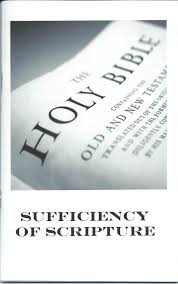
Sometime in seminary, my ecclesiology class was tasked with defining a biblical view of church polity. Here is that paper, refined and updated. It argues for an unmistakably Baptist reading of the Bible, as it conjoins congregational authority with elder leadership.
*******
Should the church be congregational or should it be led by a plurality of elders?
This oft-debated question finds its difficulty in the fact that both approaches find substantial biblical support. So the question, “What does the Bible say,” does not sufficiently lead to a one-sided resolution. To answer this question, the first thing that must be seen is the asymmetry implicit in the question. Congregationalism pertains to authority. Plurality of elders concerns leadership. Together, it is vital to recognize that authority and leadership are not synonymous, and that, in fact, God has wisely designed authority and leadership to be distributed through the church, even as the church recognizes and submits to appointed elders.
Therefore, even though many Baptist churches elevate congregationalism over, and at the expense of, elder leadership (i.e., congregational democracies) and other Presbyterian churches elevate elders over the congregation (i.e., elder ruled), it is best to have congregational authority and elder leadership, or so I will argue. Continue reading



 From the beginning of the church, there were designated leaders. And though given various names (e.g.,
From the beginning of the church, there were designated leaders. And though given various names (e.g.,  In fair weather, the Pastoral Epistles are a storehouse of spiritual wisdom and instruction for the life of the Church and her ministers. But as we know too well, such cloudless skies are infrequent. Thankfully, when affliction grips the body of Christ, Paul’s letters to Timothy and Titus are the most capable of helping pastors and churches navigate dark skies and turbulent winds. And thus in times of relational conflict and spiritual warfare, we (pastors) need to study them with an eye to what they say to about leading the church through conflict.
In fair weather, the Pastoral Epistles are a storehouse of spiritual wisdom and instruction for the life of the Church and her ministers. But as we know too well, such cloudless skies are infrequent. Thankfully, when affliction grips the body of Christ, Paul’s letters to Timothy and Titus are the most capable of helping pastors and churches navigate dark skies and turbulent winds. And thus in times of relational conflict and spiritual warfare, we (pastors) need to study them with an eye to what they say to about leading the church through conflict. This is how one should regard us, as servants of Christ
This is how one should regard us, as servants of Christ
